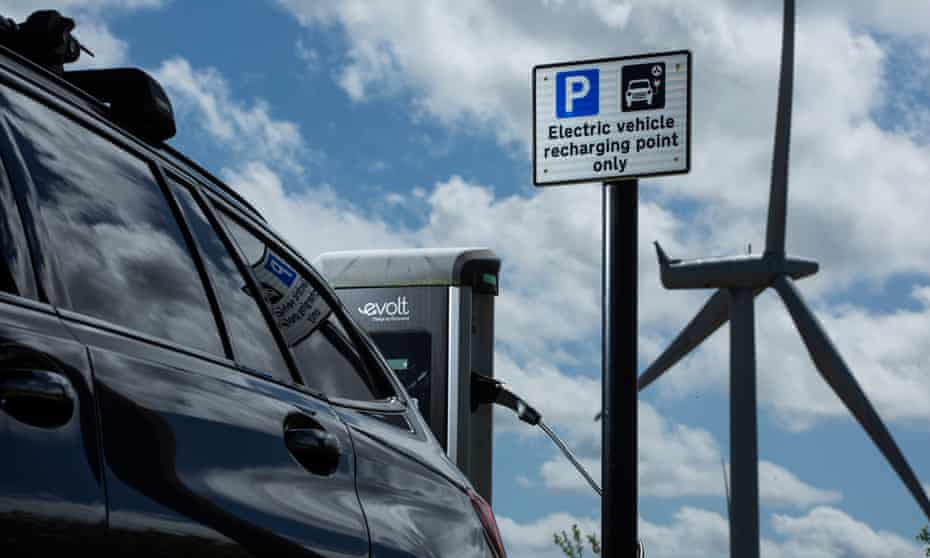Electric cars sold in UK passes half a million despite supply chain issues
A fifth of the electric cars on British roads were made by Tesla, the US electric car pioneer

The number of electric cars sold in the UK has surpassed half a million, according to analysis that underlines the rapid growth in demand despite supply chain problems caused by the pandemic and Russia’s invasion of Ukraine.
The UK reached the milestone in June and the number of electric cars in the country is likely to overtake France later this year, according to Matthias Schmidt, a Berlin-based automotive analyst.
The number of electric cars on the UK’s roads has soared from fewer than 100,000 in 2019 as carmakers have started to produce them in large volumes to meet tightening regulations on carbon dioxide emissions, and impending bans on petrol and diesel cars that will come in by 2035 in the UK and EU.
The figures mean that pure electric cars account for about 1.2% of the 40.5m cars on British roads, but that share is expected to rise rapidly as manufacturers roll out new models. UK electric car production in May was twice what it was a year earlier, according to the Society of Motor Manufacturers and Traders, a lobby group.
A fifth of the electric cars on British roads were made by Tesla, the US electric car company run by Elon Musk.
Demand for electric cars has outstripped supply for several years – even as the government has gradually cut subsidies to zero as of June. But sales have been held back by shortages of supply both from manufacturers underestimating demand and from component shortages – most notably of computer chips – that have affected the whole industry.
Schmidt said the UK could have hit the 500,000 milestone more quickly if it were not for those disruptions, including to production of wire harnesses made in Ukraine. They bundle together electric cabling that controls different systems in a car.
“Given the supply shortage headwinds, the Ukrainian wire harness production shutdowns, as well as Covid shutdowns in China – slowing goods leaving the Chinese market – production at European car plants was subsequently bruised and battered,” he said. “The UK, which is the market that soaks up the most EU manufactured cars worldwide, has also consequently suffered from this lack of supply.”
Schmidt added that the manufacturers have been forced to prioritise the UK for battery car deliveries in order to meet CO2 emissions targets. Carmakers face steep fines if they fail to reduce quickly enough the average emissions of the cars they sell.
The targets were originally brought in by the EU, but the UK copied them into law after Brexit. When the UK was in the EU manufacturers could balance out the larger, more polluting cars preferred by Britons with smaller, lower-emissions vehicles preferred in markets such as Italy, but that is no longer the case.